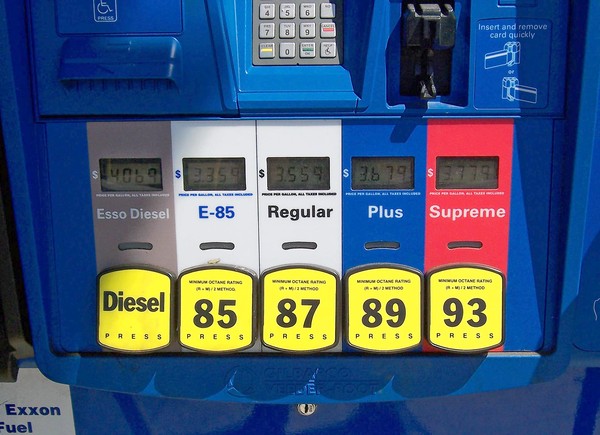Decoding Octane: 87 vs. 89 - The Fuel for Thought
The subtle hum of the engine, the gentle purr turning into a roar as you accelerate – it’s a symphony of controlled explosions, a dance of fuel and fire within your vehicle’s heart. But what fuels this dance? And more importantly, what fuel is the *right* fuel? The question of whether to use 87 octane or 89 octane gasoline is a persistent whisper at the gas pump, a quiet debate that often leaves drivers bewildered.
Choosing the correct octane isn’t merely about cost; it’s about understanding the intricate relationship between fuel, engine performance, and longevity. It’s about maximizing efficiency while minimizing potential harm. This seemingly simple choice, a single digit difference, can have significant implications for your vehicle's health and your wallet.
This exploration into the realm of octane delves into the science behind these numbers, dissecting the nuances of 87 versus 89. We'll unpack the implications for different vehicle types, driving habits, and budgets, aiming to provide a clear roadmap for navigating this common conundrum.
From the bustling freeways to the quiet country roads, the question echoes: 87 or 89? Let’s unravel the complexities, moving beyond the simple numbers to understand the underlying principles that govern this crucial choice.
Understanding the difference between 87 and 89 octane requires a brief foray into the concept of fuel’s resistance to “knocking.” Knocking, or detonation, occurs when the air-fuel mixture in the engine’s cylinders ignites prematurely, disrupting the smooth, controlled combustion process. Higher octane fuels are more resistant to this premature detonation, allowing for higher compression ratios and, in certain engines, increased performance.
Historically, as engine technology advanced and compression ratios increased, the need for higher octane fuels emerged. Today, most vehicles are designed to operate efficiently on 87 octane, often referred to as "regular" gasoline. However, some high-performance or turbocharged engines require higher octane fuels like 89 or even higher to prevent knocking and maintain optimal performance.
Choosing the correct octane, as recommended by your vehicle's manufacturer, is crucial for preventing engine damage. Using a lower octane than specified can lead to knocking, potentially causing long-term damage to pistons, valves, and other engine components. Conversely, using a higher octane than necessary generally doesn't offer any performance benefits and is simply a waste of money.
One potential benefit of using premium fuel (89 octane or higher) is improved fuel economy in certain high-performance vehicles. However, this is not universally true, and for most standard vehicles, the potential fuel economy gains are negligible and do not offset the increased cost of the fuel.
If your car manufacturer recommends 87 octane, stick with it. Using 89 octane will likely not offer any noticeable benefits. However, if your car requires 89 octane or higher, using a lower octane can lead to engine damage and reduced performance. Consult your owner's manual for the recommended octane rating for your vehicle.
Advantages and Disadvantages of 87 vs 89 Octane
| Feature | 87 Octane | 89 Octane |
|---|---|---|
| Cost | Lower | Higher |
| Suitability | Most vehicles | High-performance/turbocharged engines |
| Performance | Standard | Potentially enhanced in specific engines |
Best Practices:
1. Consult your owner's manual.
2. Avoid using lower octane than recommended.
3. Don't waste money on higher octane if not needed.
4. Monitor your vehicle's performance.
5. Consider fuel additives with caution.
FAQ:
1. What is octane rating? It measures a fuel's resistance to knocking.
2. Will higher octane improve my mileage? Not usually in standard vehicles.
3. Can I switch between octanes? Generally yes, but follow your manufacturer's recommendation.
4. What happens if I use the wrong octane? Using lower octane than recommended can damage your engine. Using higher octane is generally harmless but wasteful.
5. What about octane boosters? Use with caution and consult your owner's manual.
6. Does octane rating affect emissions? No direct impact.
7. Is higher octane cleaner? Not necessarily.
8. How do I know which octane my car needs? Check your owner's manual or the sticker inside your fuel door.
Tips and Tricks: Keep track of your fuel expenses and mileage to see if there are any noticeable differences when using different octane fuels. This can help you determine if using a higher octane is truly beneficial for your vehicle.
In conclusion, the choice between 87 and 89 octane isn't a matter of one being inherently superior; it’s about choosing the right fuel for your specific vehicle. Understanding the role of octane in engine performance is key to making informed decisions at the pump. While the lure of increased performance might tempt you towards higher octane, the reality is that for most vehicles, 87 octane suffices. Sticking to your manufacturer's recommendation ensures optimal engine health, prevents unnecessary expenditure, and keeps your vehicle running smoothly. Ultimately, making the right choice empowers you to navigate the world of fuel with confidence, ensuring that your engine sings its song for miles to come. Don't let the numbers at the pump intimidate you; knowledge is power, and in this case, it’s the key to a healthy and happy engine.
Bowling ball oil removal secrets revealed
Decoding the wg pay scale
Unveiling the subtle beauty of farrow and ball terron














